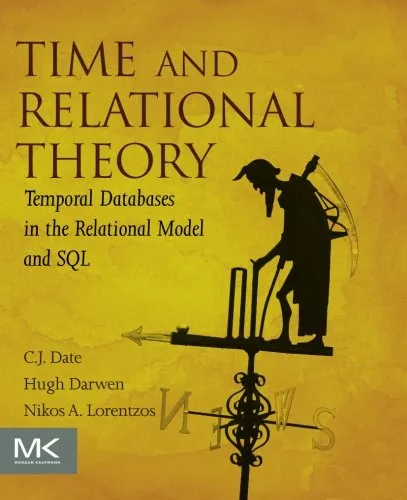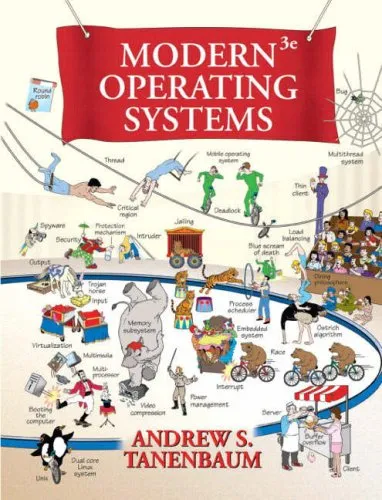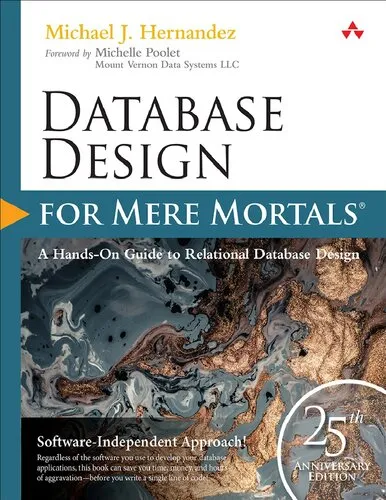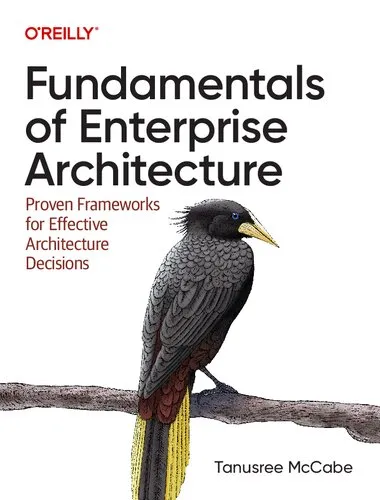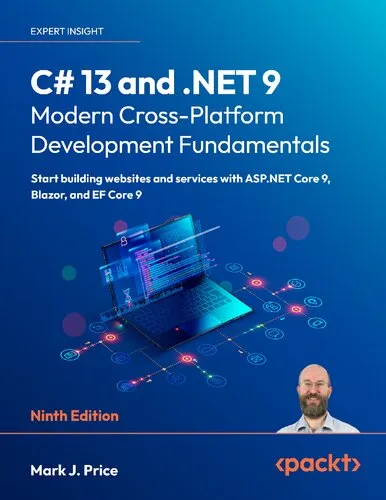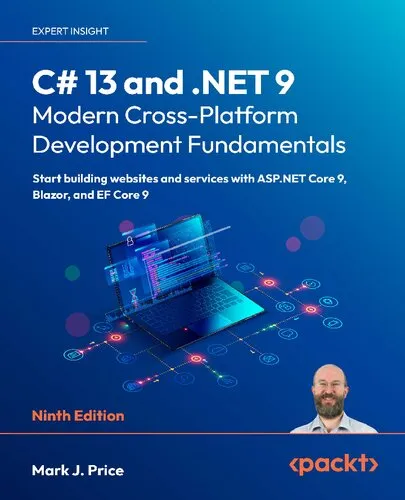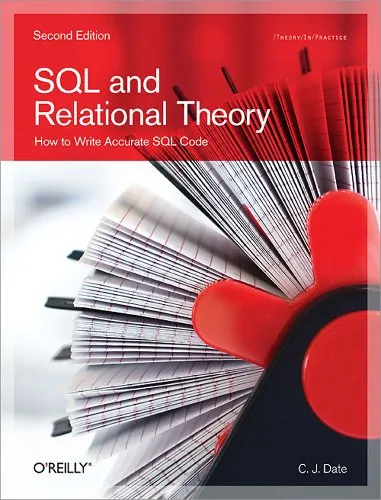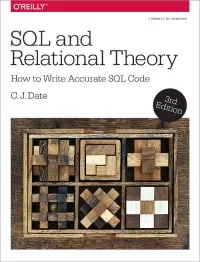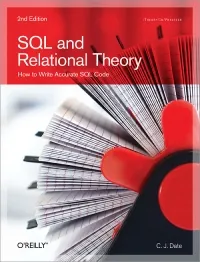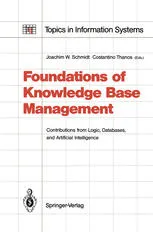Time and Relational Theory : Temporal Databases in the Relational Model and SQL
4.5
Reviews from our users

You Can Ask your questions from this book's AI after Login
Each download or ask from book AI costs 2 points. To earn more free points, please visit the Points Guide Page and complete some valuable actions.Related Refrences:
"Time and Relational Theory: Temporal Databases in the Relational Model and SQL" serves as a rigorous exploration into the realm of temporal databases. Authored by preeminent database scholars C. J. Date, Hugh Darwen, and Nikos Lorentzos, this book delves into the intricacies of incorporating time dimensions effectively within the framework of relational database systems. This introduction provides a comprehensive view of what the book entails, its valuable insights, key quotes, and why it stands as an essential read for database professionals and scholars.
Detailed Summary of the Book
The book meticulously dissects the concepts of temporal databases and how they operate within the confines of the relational model. Unlike traditional databases, temporal databases manage time-varying data and can query historical data seamlessly, which is crucial for many modern applications. The authors begin by addressing fundamental temporal concepts, ensuring that the reader has a grounded understanding of time as a dimension in database systems.
As the book progresses, it dives into the details of temporal data languages, querying mechanisms, and how different models confront the challenges of time-based data. By using relational algebra and SQL, the authors demonstrate how temporal features can be naturally and efficiently integrated. Additionally, the book explores the theoretical underpinnings of temporal databases and the complexities involved with maintaining historical accuracy and future predictions.
True to the ethos of the relational model, the book argues against the proliferation of extensions and instead promotes a purist approach to handling temporal data. Through clear definitions, theoretical exercises, and practical examples, "Time and Relational Theory" not only educates but challenges conventional thinking surrounding database design and implementation.
Key Takeaways
- Understanding the basic principles and motivations behind temporal databases and their growing necessity in modern computing.
- Learning how temporal constraints and temporal algebra can be integrated with standard SQL and relational models to better handle time-sensitive data.
- Gaining insight into the theoretical frameworks that support the effective management of temporal data in relational databases.
- Recognizing the challenges and solutions associated with temporal database design, including performance and storage implications.
- Appreciating the minimalist approach to database extensions, emphasizing the power and flexibility of relational theory.
Famous Quotes from the Book
"One significant aspect of temporal databases is their ability to allow users to travel in time; this means users can query past, present, and future data seamlessly."
"A temporal database is a database with built-in support for handling data involving time, in contrast with ‘snapshot databases’."
"Understanding time in databases is not merely a technical pursuit but an essential foundation towards achieving computational models closer to human reasoning."
Why This Book Matters
In the age of big data and real-time analytics, understanding how to effectively incorporate time dimensions within database systems is crucial. "Time and Relational Theory" is more than just a technical manual; it is a philosophical discourse into the heart of database theory. As organizations move towards data-driven decision making, the importance of accurately representing and querying time-based data cannot be overstated.
This book's contributions lie in its advocacy for a principled approach, adhering to the relational model's strengths. By doing so, it not only simplifies complexity but also enhances robustness and flexibility in database implementations. For researchers, students, and seasoned professionals alike, this work is an indispensable resource in understanding not only the 'how' but the 'why' behind temporal relational databases.
The authors' deep expertise, combined with their clear, engaging writing style, makes this book a compelling read for anyone involved in database management or interested in the computational representation of time. Whether you're building the next generation of enterprise systems or are simply curious about the architectures that underpin the digital world, "Time and Relational Theory" offers profound insights and practical solutions.
Free Direct Download
You Can Download this book after Login
Accessing books through legal platforms and public libraries not only supports the rights of authors and publishers but also contributes to the sustainability of reading culture. Before downloading, please take a moment to consider these options.
Find this book on other platforms:
WorldCat helps you find books in libraries worldwide.
See ratings, reviews, and discussions on Goodreads.
Find and buy rare or used books on AbeBooks.
1450
بازدید4.5
امتیاز0
نظر98%
رضایتReviews:
4.5
Based on 0 users review
Questions & Answers
Ask questions about this book or help others by answering
No questions yet. Be the first to ask!
